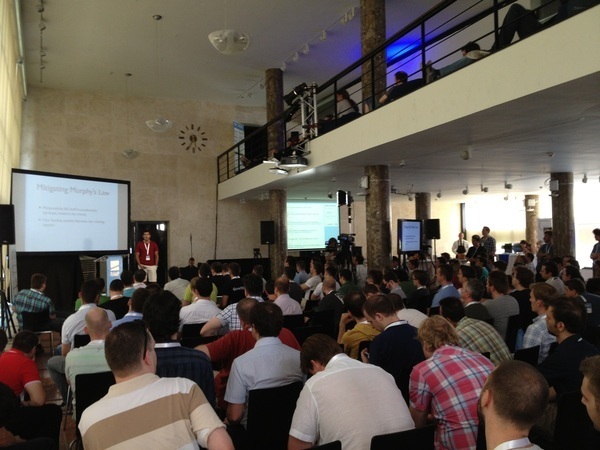Top 10 Lessons Learned from Launching iPhone Apps | Jameson Quave
Matt Nunogawa stashed this in Marketing
Stashed in: 106 Miles, Mobile!, Apple, Software!, Awesome, Apple, Marketing, Good Stuff, business, Mobile Dev!
#1 is very important because with a million apps it is hard to get noticed.
That said, most apps are not inherently viral.
#9 is super useful for getting people to re-engage with your app.
I'm not sure about the others.
Haha, I really enjoy axioms like this: #1 seems to be saying, "First, make a billion dollars"...and even though there's probably a million ways to be successful after meeting that challenge, nobody knows how to get it started by recipe.
So ok, sure, let's make it viral.
Now how exactly do we do that?
Hi, Rob. As I stated maybe not so clearly in the article, making an app viral isn't something you "do" exactly, but it's something you enable to happen. The most anyone can do to make something viral is to make it social, shareable; give users an easy way to promote your app by empowering them to share their own content. I may extend this in to a new post, but the gist is that people are self-loving and motivated to share by their own sense of their self-image. Giving users an opportunity to make some kind of statement about themselves, if possible, is a good way to promote sharing. No, this doesn't apply to all apps. For example if your working on an app that just helps you see analytics on your mobile device, there isn't necessarily anything that should be shared publicly there. That's okay, all of these tips are meant to be possible tools that can be used by app marketers. They aren't necessarily hard and fast rules that will automatically apply to all apps of every kind. With the hypothetical analytics app, a more "viral" approach is probably going to come from the brand. You can try things like using unconventional copy to surprise users, sending out freebies, or running contests in order to promote sharing of your brand.
Adam, thanks for your comments. You say you're not sure about the notes other than 1 and 9, but the list is generated from my own personal promotion list. I've released dozens of apps, and many of them are highly successful. I wouldn't have included any of these on the list if I didn't have specific scenarios where I have seen it have an impact. I know that I'm asking you to take my word for it, which is why I have been working on a detailed book with many specific case studies explaining exactly how these things work. This blog post, and my blog in general, is intentionally light on details; if it wasn't no one would read it and we wouldn't be having this discussion right now :)
Hi Jameson,
Thanks for the comments. I know it's a bit confusing, but the 1&9 comment was from Adam. My comment was the summery of the 10 points.
That being said, I find big value in numbers 9 & 10.
1,5,6 are medium value tasks, and 3,4,8 are low value, but relatively easy to do.
Advertising is usually low value, unless you have a) a good understanding of your target niche & an effective channel to reach that audience (i.e. a podcast targeting your market)... Both of those require fairly advanced market knowledge, and usually are less useful for less mature apps.
Speaking engagements are similar to advertising, where it matters what kind of engagement and the target audience. If you make developer tools and are speaking to a developer audience for example, that can be a huge payoff, assuming you can make sure the audience learns something independent of whether they use your app or not. You don't look good when you go up and give an hour long commercial.
Thanks for taking the time to reply!
Sure! I don't disagree with anything you're saying. It's all intended to be used when it makes sense; not a comprehensive guide to all marketing!
Also worth reading:
http://pandawhale.com/post/53620/how-to-get-millions-of-app-installs











11:51 AM Jan 02 2014